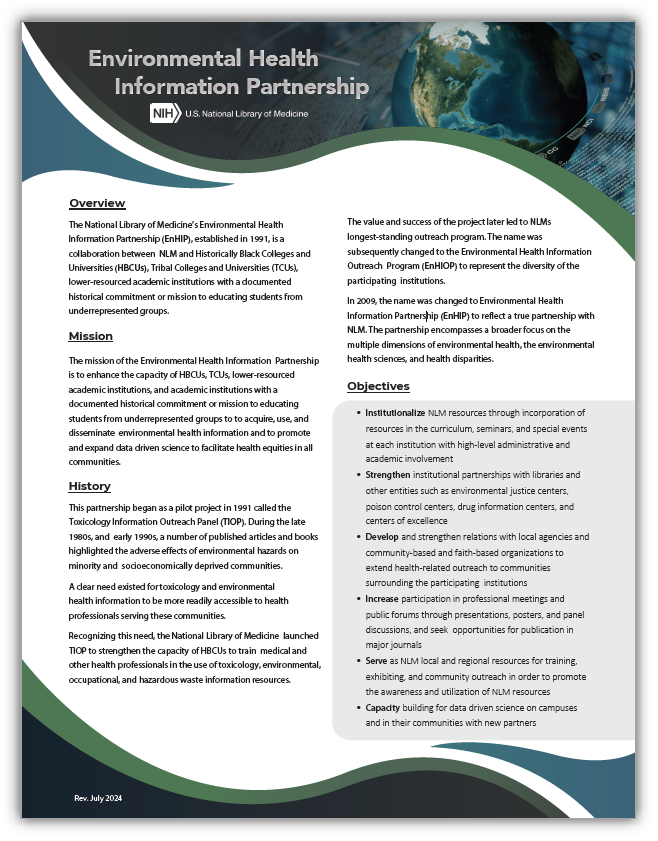The National Library of Medicine’s Environmental Health Information Partnership (EnHIP), which was established in 1991, is a collaboration between the National Library of Medicine (NLM) and Historically Black Colleges and Universities (HBCUs), Tribal Colleges and Universities (TCUs), lower-resourced academic institutions, and academic institutions with a documented historical commitment or mission to educating students from underrepresented groups.
Mission
The mission of the Environmental Health Information Partnership is to enhance the capacity of HBCUs, TCUs, lower-resourced academic institutions, and academic institutions with a documented historical commitment or mission to educating students from underrepresented groups to acquire, use, and disseminate environmental health information and to promote and expand data driven science to facilitate health equities in all communities.
Objectives
- Institutionalize NLM resources through incorporation of resources in the curriculum, seminars, and special events at each institution with high-level administrative and academic involvement
- Strengthen institutional partnerships with libraries and other entities such as environmental justice centers, poison control centers, drug information centers, and centers of excellence
- Develop and strengthen relations with local agencies and community-based and faith-based organizations to extend health-related outreach to communities surrounding the participating institutions
- Increase participation in professional meetings and public forums through presentations, posters, and panel discussions, and seek opportunities for publication in major journals
- Serve as NLM local and regional resources for training, exhibiting, and community outreach in order to promote the awareness and utilization of NLM resources
- Capacity building for data driven science on campuses and in their communities with new partners
Last Reviewed: July 25, 2024


